Social Media Marketing FAQ Guide
Find answers to common social media questions about engagement, audience growth, and content creation. Learn tips on posting strategies, hashtags, and analytics to simplify your social media journey and achieve your goals.
What is Social Media Marketing?
Social Media Marketing (SMM) is the practice of using social media platforms like Facebook, Instagram, LinkedIn, and Twitter to promote your brand, engage with your audience, and drive traffic to your website. It includes content creation, paid ads, and audience interaction.
Which social media platform is best for my business?
The best platform depends on your target audience and business goals. For example, Instagram and TikTok work well for visual and younger audiences, LinkedIn is ideal for B2B businesses, while Facebook is versatile and great for community building.
How often should I post on social media?
Posting frequency depends on the platform and audience. A general guideline is: Instagram (3-5 times a week), Facebook (2-3 times a week), Twitter (daily or multiple times), and LinkedIn (1-2 times a week). The key is consistency and quality.
How do I increase my followers on social media?
To increase followers, create engaging and valuable content, use relevant hashtags, post consistently, interact with your audience, and collaborate with influencers or brands in your niche. Avoid buying followers, as they rarely engage.
What is the best time to post on social media?
The best time to post depends on your audience. However, research shows that early mornings, lunchtime, and evenings generally perform well. Use insights and analytics tools to track when your audience is most active.
How can I measure social media ROI?
To measure ROI, track metrics like website traffic, conversions, sales, and engagement (likes, shares, comments). Use tools like Google Analytics, Facebook Insights, or third-party platforms to connect social activity to business outcomes.
What is a social media content calendar?
A social media content calendar is a schedule for planning and organizing your posts across platforms. It helps you stay consistent, plan campaigns in advance, and align your content with holidays, trends, or business goals.
What are hashtags, and how do I use them effectively?
Hashtags categorize your content and make it discoverable to a broader audience. Use relevant and trending hashtags for your industry, but avoid overloading posts with too many. Research popular hashtags in your niche for maximum impact.
Should I run paid ads on social media?
Yes, paid ads can help you reach a targeted audience quickly. Platforms like Facebook and Instagram allow you to customize ads based on demographics, interests, and behaviors. They’re especially useful for driving sales, leads, or brand awareness.
How do I create engaging content for social media?
Engaging content includes videos, stories, behind-the-scenes posts, polls, user-generated content, and trending challenges. Focus on creating value by educating, entertaining, or solving a problem for your audience.
What is influencer marketing, and how does it work?
Influencer marketing involves partnering with social media influencers to promote your brand. Influencers have a loyal following and can help you reach a specific audience through authentic endorsements or collaborations.
What is the role of analytics in social media marketing?
Analytics provide insights into your audience’s behavior, engagement rates, and content performance. By tracking metrics like reach, impressions, and click-through rates, you can optimize your campaigns for better results.
How do I handle negative comments on social media?
Respond professionally and empathetically to negative comments. Address the issue promptly, offer solutions, and show your audience you care. Avoid deleting comments unless they’re offensive or spam.
What is social media engagement?
Engagement refers to actions like likes, comments, shares, and clicks on your posts. High engagement signals to algorithms that your content is valuable, which increases its visibility to a larger audience.
What are social media algorithms?
Algorithms determine what content users see based on their behavior, preferences, and interactions. To succeed, focus on creating relevant, high-quality content that encourages engagement, as this helps boost visibility.
How can I use social media for lead generation?
Use lead magnets like free resources (eBooks, webinars), run lead generation ads, add calls-to-action (CTAs) in posts, and optimize your profile links to drive users to sign-up forms or landing pages.
Do I need a professional to handle my social media marketing?
You can manage it yourself if you have the time and knowledge. However, hiring a professional or agency ensures expert strategies, creative content, and consistent management, which can save you time and yield better results.
How do I increase engagement on social media?
Post consistently, create interactive content (like polls or Q&A), respond to comments, and engage with your audience’s posts. Use storytelling and tap into trending topics to spark interest.
What is a social media audit?
A social media audit involves reviewing your profiles, analyzing performance metrics, and identifying areas for improvement. Check your engagement rates, follower growth, content consistency, and alignment with business goals.
How important are social media stories?
Yes, stories are important for engagement as they create a sense of urgency with their 24-hour lifespan. Use them to share behind-the-scenes content, promotions, polls, or quick updates
What is the difference between organic and paid social media?
Organic posts are free and rely on algorithms to reach your audience, while paid ads let you pay to target a specific audience. Combining both can maximize your reach and engagement.
OrgoDigital represents a seamless fusion of “Organic” and “Digital” growth in the realms of technology and digital marketing. From crafting dynamic websites and high-performing apps to implementing data-driven marketing strategies, we focus on creating sustainable growth while delivering exceptional value to our clients.
Our Services
Contact Us
Useful Links
©2024. Orgo Digital. All Rights Reserved.



